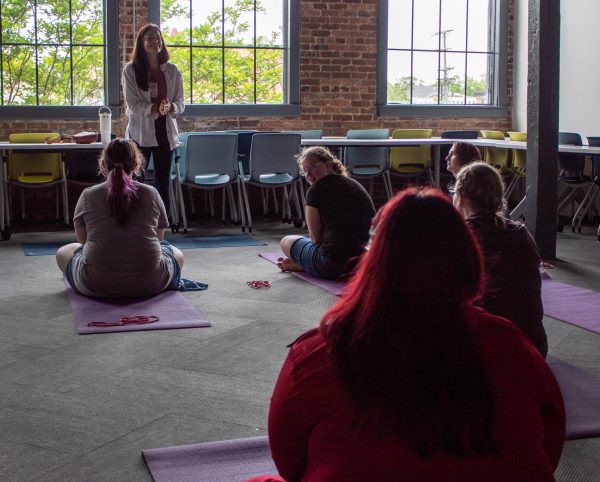UNA police seek grant for body cameras
March 24, 2016
UNA Police are searching to identify federal grant opportunities to acquire body cameras for university police officers.
Chief of Police Kevin Gillilan said many states have mandated police agencies utilize body cameras in order to increase the transparency and accountability of police activity.
“The use of body cameras may help prevent and de-escalate confrontational situations between officers and civilians or capture valuable evidence for use in criminal investigations,” Gillilan said. “We are currently working on a federal grant through the Department of Justice which requires a 50 percent match of any federal funds acquired. We will have to demonstrate the sustainability of the program at the conclusion of the grant period in order to receive consideration.”
Gillilan said the police department will require sworn officers to wear the cameras while on active duty.
“Based on existing research, the best position for the cameras to be worn are chest level and line of sight (attached to eyewear),” Gillilan said. “Each camera provides a wide radius and audio in order to provide the best representation of the event possible. Unfortunately, cameras are limited and do not provide a 360-degree view of events.”
The university and police department have not determined a time for a pilot study, but several distributors of body cameras have shown interest.
“I have received quotes from a myriad of vendors and am continuing to research which technologies are most functional for the UNA Police Department,” Gillilan said. “Several vendors have offered to provide demonstrator models for short term use so that we can assess the quality of service they provide.”
Gillilan said he believes the body cameras would ensure protection to students and campus police.
“Personally, I feel like it’s a good idea,” said freshman Jonathan Crosby. “There’s no room for skepticism in what happened, how the cop handled the situation or any fault of testimony from any eyewitness if you have the visual and auditory evidence in front of you.”
Officers should wear the body cameras, said sophomore Ragan Eaves.
“The body camera would clarify some details whenever there is an issue and can keep them (officers and students) safe,” Eaves said.
Gillilan said he believes the university police department will be able to successfully implement the program on campus.
A successful platform will mean the university must add additional rules for audio and visual records.
“UNA Police would adopt a comprehensive departmental policy outlining their use, the storage of any digital evidence and the release of any footage,” Gillilan said. “This policy would align with national standards and guidance from the Bureau of Justice.”










